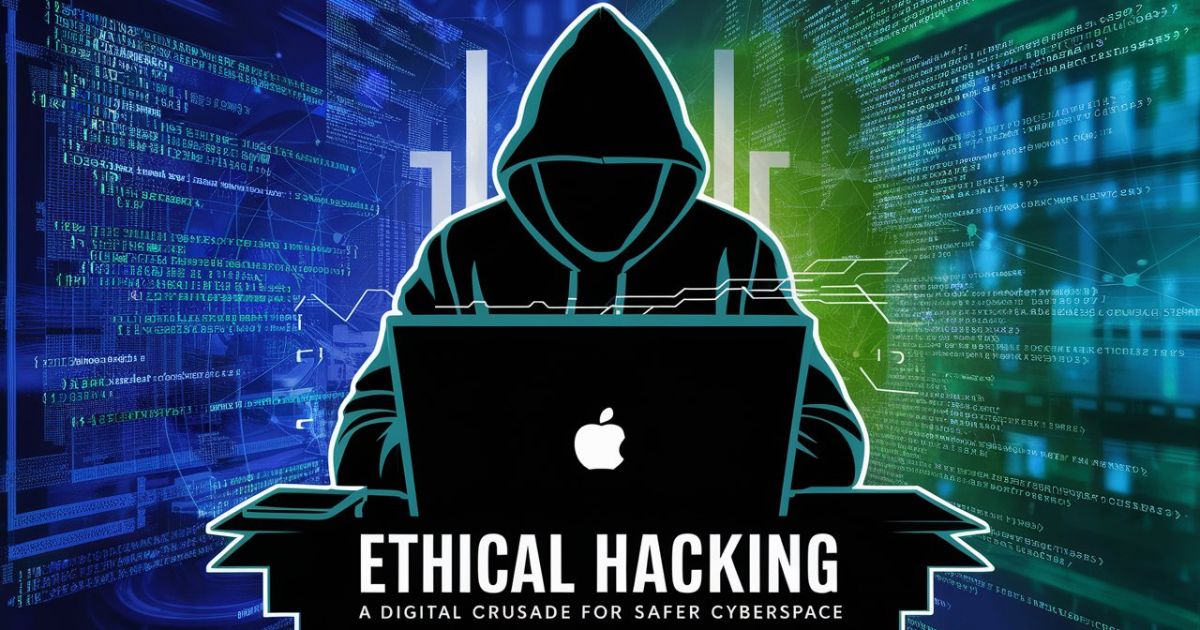Table of Contents
Introduction
In this article, we will tell you about Ethical Hacking Jobs and Salaries. Ethical hacking is using Hacking methods to accomplish different goals, mainly detecting vulnerabilities in systems, networks, or applications. Prevention is implemented by identifying and fixing security issues before malicious hackers can exploit them.
Professional hackers, the largest subgroup of ethical hackers are individuals who are authorized by organizations to hack into it and help them in improving security measures. Their actions that are fully compliant with the legal and ethical standards enforce their transparency as well as integrity.

Key Principles
- Agreement and Consent: No ethical hacker should operate without the permission of the owner to carry out their tests.
- Scope ID: They state clearly what the scope of their engagement is, and are clear about which systems and processes will be included in testing.
- Report and Document: Ethical hackers keep detailed records of their activities, and findings, report them, and note down the suggested remediation measures that can remove these issues.
- Confidentiality: They safeguard the confidentiality of their investigations and findings so that confidential information is not shared with others.
Types of Ethical Hacking

The field of ethical hacking is vast and includes different sections to study a specific section in cybersecurity. In the previous post we dived into a variety of sorts that ethical hacking can be cast, here is another look at them;
1. Network Hacking
A computer network infrastructure comprises many interconnected devices and services, such as wired and wireless networks, data communication centers, and security systems like firewalls or intrusion detection programs. It is an endeavor in which you allow the ethical hacker to try and test your firewall, find those open ports that should not be accessible, or exploit potential weaknesses for security breaches.
2. Web Application Hacking
A type of hacking known specifically as web application hacking deals with identifying and patching loopholes in web applications. SQL injection, cross-site scripting (XSS), and CSRF are a few of the techniques performed by ethical hackers on web applications to ensure their resilience system.
3. Wireless Network Hacking
Wireless network hacking, which is yet very common targets wireless systems and devices. The ethical hackers then make use of any tool that can crack wireless encryption to gain access, exposing vulnerabilities in Wi-Fi security mechanisms.
4. Social Engineering
The technique known as “social engineering” involves coercing someone into disclosing private information. This could entail social manipulation techniques that ethical hackers can imitate, including phishing attacks or pretexting.
5. Mobile Hacking
The two areas in which mobile hacking focuses are around the security of mobile devices and applications. Since then, white hackers have been testing apps for security loopholes and exploitations to review several mobile operating systems – android as well as iOS.
6. Email Hacking
Email hacking: This happens when the security of email systems is probed. By mimicking email spoofing and phishing, ethical hackers make sure that no one gets unauthorized access to an organization’s emails.
7. System Hacking
System hacking: Finding weaknesses in computer hardware and operating systems is the technique of system hacking. The good guys provide content to assist in the detection of spyware, hidden doors, and other foreign assaults into systems so that they may be better protected.
8. Reverse Engineering
Reverse engineering is a way to decode software and understand deeper (hidden) security features of the software. Reverse engineering is a technique used by ethical hackers to reverse engineer malware and build better defense gears.
9. Physical Hacking
Physical hacking is the act of breaching physical security barriers to gain access to a facility or onto properties that are otherwise secure from normal entrance points. When a hacker breaks into the system and finds any issues, these white-hat hackers work on it to protect its security controls such as locks, surveillance systems, and access points that are evaluated to obtain statistical evidence of comprehensive protection.
10. Cloud Hacking
A penetration test on cloud hacking evaluates the security of our facilities in this IT world – The Cloud-Based Services. The job of ethical hackers is to examine cloud deployments, access control policies, and data storage so that nefarious factions can’t get at your sensitive info in the cloud.
The variety of ethical hacking describes the complexity involved with protecting digital environments, each requiring different skills and techniques.
Importance in Cybersecurity
As the core part of cybersecurity, ethical hacking is a crucial method for organizations to:
- Avoid Data Breach: Being able to identify the weak point and take action accordingly would lower the risk of a data breach.
- Adherence to Regulations: Enforcement of security standards, and adhering to compliance regulations.
- Trust Built: Proves to customers and stakeholders security dedication
Quotations from Industry Experts commonly echo around the importance of ethical hacking in an age where our digital landscapes are greater than ever, underlining its role as a means to secure data proactively and stand prepared with strong security postures.
Tools Used:

- Nmap: Nmap also known as Network Mapper is an open source tool that can be used for discovering networks and for security validating.
- Wireshark: Real-time analysis of network traffic.
- Burp Suite: Web application security testing Burp Suite is an integrated platform for performing security… (source: portswigger.net)
- John the Ripper: used for detecting weak passwords.
Common Techniques Used
- Penetration Testing: It is kind of like a red team from the previous definition where it simulates attacks to see if there are any exploitable weaknesses.
- Footprinting and Reconnaissance: Obtains information about the target host.
- Scanning: Tools that scan for open ports and vulnerabilities.
- Exploit A threat who takes an action of exploiting the opposite system, it means that s/he trying to get to a point and do something without permission.
Ethical hacking performed under standard compliance guidelines and with a clear methodology is the key part of cybersecurity strategy today.
The Role of an Ethical Hacker
A white hat is an ethical computer hacker or a computer security specialist which the investors of an organization would prefer to have on their side. While there are hackers Ethical hacking is used by organizations that are in search of a means by which the latter can have vulnerabilities reviewed and rectified. Key responsibilities include:
- Vulnerability Assessment We conduct a Vulnerability Assessment which is nothing, but identifying vulnerabilities in applications/n/w systems regularly.
- Pen Testing Penetration testing is to simulate cyber threats that are used by security experts to analyze the organization’s infrastructure defenses.
- System Configuration Code Review and Policy review to Make sure they are following security best practices for an Infrastructure.
- Risk Analysis A method to identify and assess threats to predict undesired events, prioritizes risks so that businesses can see what might be more important under the circumstances.
- Reporting and Documentation This involves creating exhaustive reports outlining the vulnerabilities, and possible impacts of exploitation along with mitigation strategies.
Ethical hacker has well-defined processes that they follow to ensure complete evaluation:
- Reconnaissance: Obtaining Information about the Target System
- Scanning: Tools are used to find open ports/services and reconnaissance points.
- Privilege Abuse: Using privilege to gain access.
- Continued Access: Ensuring they can continue gathering information(nodes) as needed
- Covering Tracks: Erasing all forms of evidence that can be used to catch you while trying to find your way using a backdoor in an ethical hacker’s show notes.
What to learn if you want to become an Ethical Hacker?
- Operating Systems: Windows, Linux, and macOS Demo.
- Knowledge of networking: TCP/IP, DNS, etc.
- Experience in C, Java, and Python.
- Problem Solving: The ability to apply analytic reasoning in increasingly complex security issue prevention.
- Current Knowledge: Awareness of the newest cyber threats and prevention techniques.
Certifications of Most Holy Ethical Hackers
- Expert in Ethical Cybersecurity (CEH)
- They possess credentials such as the OSCP (Offensive Security Certified Professional)
- CISSP (Certified Information Systems Security Professional)
They attest to their expertise and commitment as traders. They also work together with IT, legal, and other executive divisions inside a firm to provide an extensive approach to security.
With the growing number of cyber threats today, we need ethical hackers. They help protect sensitive data, and assets and ensure regulatory compliance.
Ethical Hacker Jobs
In a world where cybersecurity is becoming ever-important, ethical hacker jobs are crucial. These testers do more than just test systems for vulnerabilities, they also provide some solutions to strengthen security measurements.

Common Job Titles
- Penetration Tester: Identifies vulnerabilities by attacks designed for the system in mind.
- Security Consultant: which offers consultants to businesses on how they can best protect their data and networks.
- Security Incidents Analyst: Identify attacks and take action
- Vulnerability assessor: determines where possible threats are associated with hardware and software
- Security Engineer: This is the man responsible for designing and implementing systems to defend against cyber criminals.
Required Skills
Soft skills or technical Skills
Technical Knowledge:
- Also, it includes Network Protocols such as TCP/IP, DNS, and HTTP/S.
- Operating Systems: Windows, Linux, and UNIX FAMILIAR conveyed proficient role-relevant work experience.
- Scripting: Bash, Python<>(“)Ruby”)
Cryptography: information about encryptions and their uses
Tools and Techniques:
- Pen Test Software Knowledge – Metasploit, Nessus, etc.
- Social Engineering – Understanding how human psychology can be damaged to gain information.
Soft Skills:
- Analytical: The candidate will be working on various complex systems and accordingly must have relevant thinking to identify potential weak spots within these.
- Communication: Being able to talk tech with non-tech pros.
Certifications
Some important certifications that can help in credibility and better job prospects include.
- The first is the Certified Ethical Hacker, here you shall learn about various hacking methods and even how to counter them.
- Offensive Security Certified Professional (OSCP): This one is more about hands-on penetrating testing. Bottom Line.
- CISSP (Certified Information Systems Security Professional): an all-around certification, and one of the hardest to pass although the test covers nearly all areas of security.
Ethical Hacker Salary
Different factors may affect the compensation for ethical hackers. CBCs can expect lower and upper salary boundaries determined largely by geographic location, experience level, education/experience requirements of the role they want to fill, and industry demand.
Ethical Hacker Salary Chart in the USA
| Experience Level | Average Annual Salary |
|---|---|
| Entry-Level (0-2 years) | $60,000 – $80,000 |
| Mid-Level (3-5 years) | $80,000 – $110,000 |
| Senior-Level (5+ years) | $110,000 – $150,000+ |
Salary by Industry
| Industry | Average Annual Salary |
|---|---|
| Financial Services | $100,000 – $130,000 |
| Technology | $90,000 – $120,000 |
| Healthcare | $85,000 – $115,000 |
| Government | $75,000 – $105,000 |
| Consulting Firms | $80,000 – $110,000 |
Salary by Location
| Location | Average Annual Salary |
|---|---|
| San Francisco, CA | $100,000 – $150,000 |
| New York, NY | $95,000 – $140,000 |
| Washington, D.C. | $90,000 – $130,000 |
| Austin, TX | $85,000 – $120,000 |
| Seattle, WA | $90,000 – $130,000 |
Entry-Level Salaries
Most ethical hackers that I know and read about started very young as a junior or in an internship role.
- In the United States, new ethical hackers should expect to make between $60,000 and $80,000 per year.
- This number can also vary from region to region, such as in Europe and Asia have usually a range of $35k-60k.
Mid-Level Salaries
Ethical hackers with 3-5 years of mid-level experience can expect to make decent money:
- Average: $80 000-110, XXX per year
- Studies in Certified Ethical Hackers (CEH) and Offensive Security Certified Professional will only serve to increase those numbers.
Senior-Level Salaries
Experience – Sr. ethical hackers with at least 5-10 years of experience including Specialized roles or managerial positions earn even more:
- Salaries can vary anywhere from $110,000-$150.000+ per year
- Higher-level positions could also offer benefits including bonuses, equity, and more.
Factors Affecting Salaries
The Salary of an Ethical Hacker Depends on Few Mention Factors
Where: Larger tech hubs will tend to pay more (think San Francisco, New York, and London.
Salary: Certain industries such as finance, healthcare, or governments might pay you a lot because the data they handle are sensitive.
However, having higher educational qualifications and certifications would be very beneficial for earning potential.
Where and How to Start Ethical Hacking
Learning ethical hacking is an edifice built on your theoretical knowledge and practicing hands-on to get into the real industry of system protection. Passionate individuals can become skilled in ethical hacking by following an organized course of study and taking advantage of hands-on trials.

Online Courses and Tutorials
- Udemy: is a platform that provides courses on many things, Ethical hacking being one of them.
- Coursera: Offered by various universities and companies specializing in everything
- Khan Academy: Special shoutout to Khan for providing the intro stuff on computer science.
- Pluralsight: It is popular for a wide library of technology courses.
Create a Home Lab
Home lab is very obviously important for those who wish to have hands-on without any legal concerns
- Virtual Machines (VMs): Software like VM Virtual Box/ VMware
- Operating Systems: Install various OSs to test stuff (e.g. Kali Linux).
- Resources to Set Up a Network: Create A Controlled area of your network where you can simulate attacks.
Series of Capture The Flag (CTF) Competitions
This is like playing CTF challenges, which can improve your real-world hacking skills.
- Hack The Box: A very well-known platform that offers real-world hacking labs.
- CTFTime: It displays many of the competitions occurring around the world
- OverTheWire: Great war games for teaching and practicing.
Another option is to use commercially available pen testing platforms which are legally contracted from reputable vendors.
These platforms offer legal ways to hone hacking skills through:
- Bugcrowd: Crowdsourced security platform where you can invite hackers to hack on your stuff.
- Synack: Gives security researchers the ability to test networks and applications.
- HackerOne: Puts private companies in contact with hackers for security purposes.
Read and Follow Security News
Stay alert (for all the latest trends):
- For Blogs and Websites: eg Krebs on Security, Dark Reading
- Read Web Application Hacking, The Web Application Hacker’s Handbook, Hacking The Art of Exploitation.
Complement Ethical Hacking Communities
Support, events, and job opportunities in other typical communities:
- Reddit: At places like r/netsec and r/hacking.
- Discord: A few good CyberSecurity servers.
- Forums: You are surely familiar with sites like Stack Overflow for problem-solving and advice.
With the help of these resources, ethical hackers can keep on upgrading their skills and maintain industry standards properly ensuring that they practice ethically as well as legally.
Certification and Training Program
To build a foundation of trust, ethical hacker wannabes have to go through severe schooling as well as basic certifications. They help to learn the basic concepts and provide practical experience. They cover:
- Network security
- Penetration testing
- Vulnerability assessment
- Cryptography
- Cybersecurity Implications and Legal/Regulatory Do’s And Don’Ts
Notable Training Programs
- Certified Ethical Hacker (CEH): This is one of the most recommended certifications from the EC-Council. It includes the idea of malware risks, social engineering procedures, and features of advanced hacking.
- Offensive Security Certified Professional (OSCP): OSCP cert ensures skills for practical pen testing, offered by Offensive Security It forces candidates to solve a hacking challenge in a regulated environment.
- GIAC Penetration Tester (GPEN): This certification from the Global Information Assurance Certification (GIAC) focuses on penetration testing skills to include methodologies and techniques used by penetration testers, legal issues associated with pen-testing, vulnerability analysis in support of exploitation; as well as how data breaches can impact an organization both economically.
- CompTIA PenTest+: A 4-hour test that takes a more holistic view, combining vulnerability assessment and ethical hacking techniques endorsed by CompTIA. Suitable for Mid-Level Professionals.
Online Courses and Bootcamps
There are several online platforms and boot camps that offer flexible learning environments such as the following:

- Cybrary: Complete Course Catalog of Ethical Hacking & Cyber Security.
- SANS Institute: Proprietary school with live training sessions.
- Coursera, and Udemy: These platforms have mainly cheap ethical hacking courses where you can learn the basics to an advanced level.
To obtain their licenses, NPs have to complete continuing education.
Ethical hackers need to undergo continuing education to get maintained certifications. Staying current with the state-of-the-art threats in this constantly changing field is critical. Organizations such as:
- The International Information System Security Certification Consortium ((ISC)²): Offers continuing education and tools for cybersecurity professionals.
- ISACA: Cybersecurity and IT governance Workshops, webinars, and conferences Branch.
Competencies Developed Through Participation as a Trainee
Skills also included by an ethical hacker are :
- Problem-solving: Security Weaknesses
- Communicating your results: How to communicate findings in a way that makes sense for non-technical stakeholders?
- Ability to Incite: Thorough familiarity with operating systems, networks, and software used in the enterprise.
- Flexible: More details on how to handle new and evolving security challenges
Ethical hacking training focuses on enabling ethical hackers to arm their organization’s defenses with tools and safeguards against cyberattacks, unauthorized access as well as data breaches.
Upcoming Ethical Hacking Trends to Look for
Ethical hacking is a constantly shifting discipline with the changing landscape of technology. The future scenario of ethical hacking is being influenced by several trends.
Integrating AI and Machine Learning
- This is a case with ethical hacking specially automated stuff is very important. Vulnerability Detection is being accelerated using AI and Machine Learning.
- Among the endless data that it collects, it can find patterns and use predictive analysis processes within these new technologies.
Blockchain and Cryptography:
- With the increase in blockchain technologies worldwide, so too must ethical hackers need to know and penetrate the systems.
- Stronger cryptography algorithms that stop hacking, are good for one point of view and a barrier to entry in getting hacked because now you need strong skills in crypt analysis.
IoT Security:
- New attack vectors: The explosion of Internet of Things (IoT) devices has created all-new ways to be attacked.
- IoT devices remain highly vulnerable to security breaches, hence ethical hackers should pay more and more attention to their security.
Cloud Security:
- Due to the increasing tendency of organizations to migrate their business to the cloud, the security of cloud environments has never been such paramount.
- Penetration testing on cloud infrastructures and services: Cloud-native components such as containers, virtual instances Encrypted Communication Channels.
Zero Trust Architecture:
- The zero Trust model is becoming more popular, which says trust no one whether the resource is inside the network or outside the enterprise boundary.
- To do so, ethical hackers need to evolve their techniques to fully evaluate and validate zero-trust architectures.
Quantum Computing:
- Quantum computing could disrupt cryptography as we know it by breaking the encryption schemes that secure data today.
- To hold it up with an ethical hacker’s viewpoint, a final question we have to ask ourselves is- Does an implementation for quantum computing prepare malicious and adversarial factions?
Threat Intelligence Sharing:
- However, what is clear is that cooperation and threat intelligence sharing across entities need to rise.
- They do that by being part of communities online and following all the threat intelligence platforms whenever a new vulnerability is out.
Advanced Persistent Threats (APTs):
- Firstly, APTs mean several complex cyber attacks, where the enemy has the subject in his view sight.
- The strategies that ethical hackers can use to find and control such persistent threats.
Regulations and Compliance:
- The introduction of new regulations like the GDPR and CCPA have also enforced stricter control over privacy, distributing a majority responsibility to manage their data by emerging law.
- That supposes running consistent security assessments and conducting safety needs to take a look at, the task that turns into overwhelming for Earlier lack of home-grown Cybersecurity professionals.
Remote Work and BYOD:
- Moving to remote work and the Bring Your Device (BYOD) culture has increased this even more.
- This is the priority for ethical hackers who are concerned with securing remote work environments and personal devices that are used to do corporate reconciliations.
New exploits and attack trends will emerge over time, which is why the future may well be in keeping up with these developments to acquire new expertise and address emerging security threats.
Is Ethical Hacking a High Demand Skill?

As the number and varieties of cyber threats increase and extend their reach to affect businesses, governments, and individuals, ethical hacking pen testing, or white-hat hacking will see a sharp increase in demand even further up than indicated here. Only individuals with skills and knowledge in ethical hacking could perform such tasks, and for this reason, the ethical hacking profession was one of the highest-paying professions in the whole cybersecurity domain.
Reasons for Growing Demand
- Rising Cyber Threats: The growth of cyber threats implies the growth of the need for identification and prevention of the threats, which can be done by professional white hats.
- Regulatory compliance: There are many industries out there that according to laws need to undergo security auditions, this means that though their demand might not be very high at one particular time ethical hackers will always be needed in the market.
- Technological Innovations: New technologies are being introduced in the market every day and with it comes new threats when it comes to security which is only comprehensible to the experts.
- Rise in Corporate Awareness: Business entities both big and small are waking up to the fact that their systems need to be protected; hence the need for penetration testing services.
- Well-publicized Breaches: High-profile data breaches place security at the top of everyone’s agenda pushing market drivers to prevent a breach.
Core Competencies and Knowledge Domains
- Introduction to Networking: Network topologies, protocols, and hardware.
- Programming: In Python, Java, C++, and Scripting Language JavaScript
- OS: Owning it like a boss – at least one or all of the following; Windows, Linux/Unix.
- Security Tools: Competent in using security tools like Metasploit, Nmap, and Wireshark.
- Cryptography: Encryption Algorithms, Secure Communication Protocols.
Which Industries Are Looking for Ethical Hackers
- Finance and Banking: To protect financial data which is critical in the finance industry
- Healthcare: for safeguarding sensitive patient information and to meet with laws such as HIPAA.
- Govt organizations: To secure the nation from a cyber attack.
- E-commerce: to secure consumer data and transaction security
- Communications: Protect communication networks with the help of telecommunication.
Recommended Education and Certification
- Qualifications: Cybersecurity/computer science or related degree
- Certifications: Certified Ethical Hacker (CEH), Offensive Security Certified Professional (OSCP), CompTIA Security+.
One of the key values that we offer is our commitment to continuous learning, and ongoing education via workshops and seminars as well as more specialized courses always being abreast with the latest threats and technologies.
Job Roles and Opportunities
- Pen-tester: One who is hired to carry out an authorized simulated attack on a computer system with the end goal of identifying security holes.
- Security Consultant: An expert who provides advice on IT security systems and networks
- Vulnerability Analyst: Expert at detecting, analyzing, and resolving vulnerabilities in systems.
- Incident Responder: Track and respond to security interferences
Is Ethical Hacking Legal?
A type of hacker generally called Ethical Hacking or most of the time penetration testing – white-hat hacking, comes to finding security vulnerabilities (bugs) across computer systems with more focus on knowing how it is exploited followed by finding a possible fix. Whether it is legal depends on intention, authorization, and compliance with laws and regulations.
Factors Contributing To Legality
Intent
- Ethical hackers, in contrast, hack with the intent to enhance security.
- Vulnerability scanning is conducted to find bugs and correct them rather than take advantage of a defect for malevolent activities.
Authorization
- Needs Permission From the System Owner
- It is illegal to get unauthorized access even with a good intention.
Rules and Certifications
- These types of compliance are vital in implementing regulations such as GDPR, HIPAA, or PCI-DSS.
- Could that include certifications like Certified Ethical Hacker (CEH) or OSCP Offsec Pro
Legal Documentation
The following are in place to make sure the ethical hacking activities do not become illegal:
- Legal Contract: Signed agreements outlining the scope of work, timelines, and specific systems to be tested.
- Non-Disclosure Agreements (NDAs): These are used to protect logical and private information.
- Letter of Permission: Written permission specifically from the owners OVER the systems.
Dangers of Unauthorized Practices
- Legal Ramification: Unauthorized hacking can result in fines, civil lawsuits, or criminal charges.
- Damage to Recognition: the practice of hacking without the due permissions, could damage professional credibility and also future job prospects.
- Violation of Ethical Standards: Violates the ethical standards established within our cybersecurity community.
Jurisdictional Differences
Regarding hacking, different legal perspectives are:
- US: U.S. Law, including the US Computer Fraud and Abuse Act (CFAA), Mandates adherence to legal and contractual responsibilities
- European Union: Follows the General Data Protection Regulation (GDPR)0. Focuses on privacy and data protection.
- Other Countries: Local laws and regulations govern the legality of ethical hacking activities in other Countries.
Industry Best Practices
By enforcing good practices, ethical hacking stays on the correct side of legal action
- Limit Definition: Clear and comprehensive definition of testing limits.
- Client Communication: Weekly update call, FR, BI Partner, email updates with in-depth reports.
- Ongoing Education: Staying informed of advancements in the legal landscape, technology, and areas where new threats are appearing.
In following these principles, hackers are of use to organizations in strengthening their cybersecurity defense all the while remaining ethical and within legal boundaries.
FAQS
Salaries of ethical hackers may vary in location in the USA.
In the USA, a hacker’s salary varies across different locations; and major tech hubs like San Francisco, New York, and Washington D.C. are likely to have higher salaries.
How will be your salary and job in the US as a certified ethical hacker?
Indeed, certifications like CEH certification, CISSP certification, and OSCP training can contribute significantly to the Income of an ethical hacker fresher in the USA by securing better pay packages from a reputed company.
How the industry can impact an ethical hacker’s salary USA??
However, the industry does affect an ethical hacker’s salary in the USA to a great extent. Ethical hackers in financial services or technology sectors, for instance, stand to make more money than their government and healthcare counterparts.
How does the experience level affect an ethical hacker’s salary and job opportunities in the USA?
One of the big contributing factors to an ethical hacker’s salary and job prospects in the USA is experience level. These people earn less than mid-level or senior professionals with years more of experience and you can be one yourself if break into a job in that role.
Will a Higher Degree Help Increase the Ethical Hacker Salary USA?
Indeed, in the USA an ethical hacker salary can be raised if a volunteer has a higher education level (Master’s degree or even Ph.D), as employers traditionally link high-class workers with advanced occupation categories and give their work more money.
Conclusion and Final Thoughts
This serves as a vital part of cybersecurity known by the name of ethical hacking. It is a legal way of hacking into computers and networks to detect weaknesses so they can be fixed FP / OZAN KOSE Ethical hacking is a type of hacker that hacks one system to improve security or prevent the other program from being hacked.
Key Takeaways
- Ethical Hacking is commonly referred to as penetration testing or white-hat hacking, the potential future cyber-security worker tries to discover problems by performing legal and safe actions.
- Job Roles: Ethical Hacking responsibilities are to work as a Penetration tester, security analyst & vulnerability assessor. The variations of skills and certificates are specific to each position within the organization.
- Skills Required:
- Ability to code: experience with network protocols and operating systems.
- Soft Skills: Problem-solving, critical thinking; ability to communicate efficiently.
- Career opportunities: As more companies realize the importance of cybersecurity, ethical hacking is deemed to be a promising job profile.
Salary Estimates:
- $60,000 to $80,000 annually on average a junior data engineer
- In the middle: $90,000 to $120,000 annually.
- Senior-level: Over $150,000 this year
Ethical Considerations
Ethical hackers need to work under the guidelines of certain code.
- If so, Get PERMISSION before doing any testing
- Keep the data and results confidential.
- To guarantee these vulnerabilities are solved, report responsibly!
Real-World Application
The organizational sector where ethical hacking is being used:
- Finance: Safety of financial information such as Breaches.
- Healthcare: Protecting patient data and health records.
- Commentary: Protect national security and high-value public data.

